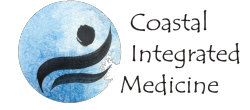“The doctor of the future will give no medication, but will interest his patients in the care of the human frame, diet and in the cause and prevention of disease. ” ~ Thomas Edison
I have been in practice for well over ten years now and have learned so much about health, people, patterns and the human body. When I was a student I was intrigued by so many of the concepts and mysteries of Traditional Chinese Medicine. I was fascinated with every facet of it.
How could a person be diagnosed by changes in the pulse, tongue and complexion? How could personality traits indicate with great accuracy the type of illness a person would be susceptible to?
There were so many questions and mystery. I was in awe of it all.
As the years went by and I treated more and more people, I began to really understand TCM. It was not magical or mysterious, it was based on concrete observable patterns.
Yes, the tongue does reflect the health with great accuracy. The tongue is an extension of the esophagus which connects to the stomach. Inflammation and acidity that originate in the stomach will show on the tongue. It’s not a mystery just simple observation; like paleness under the eyelid when a person is anemic. If you see hundreds of tongues, after awhile you see patterns.
The part reflects the whole.
TCM diagnosis and treatment is the culmination of 2000 years of careful observation and recognition of patterns in the body. The tongue is only one method of ‘reading’ the body. The pulse, complexion, voice, body type, hair and eyes all can provide information on the health of the body.
As technology advances, we rely more and more on laboratory tests, MRIs and x-rays than ever before. Although these tests can accomplish great things, I can’t help but wonder what is being lost. The skills of simple observation, palpation and information-gathering may be lagging as we increasingly rely on elaborate tests to tell us what’s wrong.
What if the tests all come back normal yet the problem persists? It is so important that we preserve the knowledge gained from our ancestors who did not have such technology but instead developed highly effective observation skills to identify illness.
Traditional Chinese Medicine has survived for thousands of years because it works. Just like a skilled sailor can read the sky for signs of weather changes before the barometer detects it, TCM can read the body to treat and prevent illness before it shows up on test results.
Over the years, I have seen many people who have come so far in their own health journey. They have learned to observe and obey the signs of their body and in doing so have been able to improve their health and quality of life.
I am grateful for the thousands of years of experience and history that has brought us this incredible form of traditional medicine. I have chosen just a few of the TCM “mysteries” also known as observations to share with you.
Tongue
A greasy, damp coat occurs with poor digestion and a bright red tip happens with insomnia.
Gallbladder
There will be pain on the lower leg at the point GB34 when a person has gallstones. Needling this point has been shown to open the bile duct.
Emotions
Traditional Chinese Medicine recognizes that emotions and stress affect the body in observable patterns. Grief affects the lungs; when a person is mourning a loved one, they are more prone to bronchitis and pneumonia.
Asthma
The health of the skin and lungs are closely related in TCM. People with asthma often experience eczema.
Stomach
Zusanli (ST36) is an acupuncture point that improves digestion by increasing gastric motility and secretions. Often while this point is needled the stomach will ‘growl’.
Common Cold
Allowing your neck to be exposed to wind and cold weakens the immune system making one more susceptible colds and flu.
Treatment
Acupuncture is just one form of therapy used within the system of Traditional Chinese Medicine. Other modalities include herbal medicine, dietary therapy, Tui Na (a form of massage), and Qi Gong (simple movement and breathing exercises).
These are only a few of the many fascinating concepts of Traditional Chinese Medicine. We have much to learn from TCM; the more we pay attention to changes in our body, the more we will understand how to remain healthy and prevent illness. The quote by Thomas Edison at the top is one of my favorites and captures the essence of TCM and the importance of preventive health care.
Until next time, eat healthy, listen to your body and enjoy life to the fullest!

